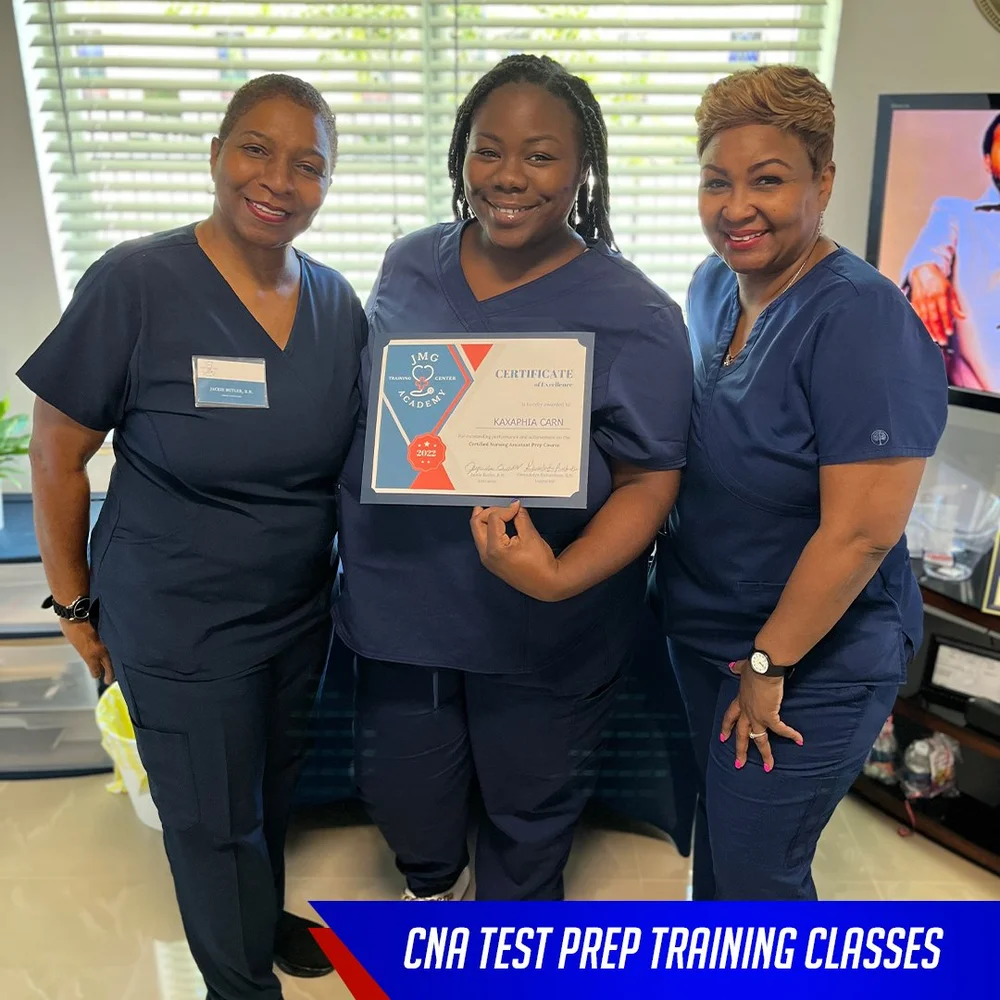CNA Classes: Answers to Popular Questions for Beginners
Wiki Article
How CNA Classes Can Assist You Launch an Effective Career in the Clinical Field
CNA courses act as a foundational stepping stone for individuals aiming to enter the medical area (CNA Classes). These programs impart vital abilities, consisting of reliable communication and individual care techniques. Trainees participate in hands-on training, linking concept with useful application. As the need for medical care specialists expands, the duty of a Certified Nursing Assistant comes to be significantly substantial. This increases concerns concerning the different profession paths and innovation opportunities that exist ahead for those who finish their trainingUnderstanding the Role of a Certified Nursing Aide
The function of a Licensed Nursing Assistant (CNA) is essential to the healthcare system, functioning as a necessary web link between patients and clinical team. CNAs mainly aid patients with everyday activities such as showering, clothing, and consuming, guaranteeing their comfort and dignity. They are frequently the first factor of call for clients, giving important emotional support and companionship. In addition to personal care, CNAs are in charge of monitoring clients' crucial indicators, reporting changes in condition to taking care of personnel, and preserving individual documents. Their tasks extend to ensuring sanitation in client settings and assisting with movement. This duty needs a compassionate temperament, strong communication abilities, and the capability to work successfully under stress. By helping with a smooth process within healthcare settings, CNAs play a significant part in boosting the total client experience and sustaining the wider clinical group in supplying high-quality treatment.Secret Abilities Acquired in CNA Classes

Additionally, CNA programs stress personal treatment abilities, including assistance with day-to-day living activities such as bathing, dressing, and feeding. CNA Classes. Infection control methods are one more important element, making sure that trainees recognize just how to keep a risk-free environment for both patients and themselves
Students get knowledge in standard clinical terms, helping with much better understanding of medical care practices. Time administration skills are grown to help CNAs prioritize tasks successfully. Overall, these essential abilities develop the structure for a successful profession in the clinical field, preparing students to fulfill the varied needs of people.
The Benefits of Hands-On Training
Acquiring sensible experience with hands-on training is important for striving CNAs, as it connects the gap in between academic understanding and real-world application. This immersive understanding approach allows trainees to create critical skills needed for client care, such as efficient interaction, empathy, and technical capacities. Taking part in real-life situations allows students to comprehend the dynamics of a healthcare setting, promoting confidence in their capabilities.Moreover, hands-on training aids pupils come to be acquainted with crucial tools and treatments, guaranteeing they are well-prepared for the obstacles of the work. It likewise provides opportunities to receive prompt feedback from trainers, improving the discovering experience. By working directly with people under supervision, striving CNAs can sharpen their empirical skills and learn to respond to various situations suitably. Eventually, hands-on training gears up these future healthcare professionals with the competence and assurance essential to be successful in their duties.
Occupation Opportunities After Ending Up Being a CNA
Various occupation opportunities await individuals that complete their CNA training, opening doors to numerous roles in the healthcare field. Certified Nursing Assistants (CNAs) are vital members of the healthcare group, providing direct person treatment in settings such as health centers, nursing homes, and assisted living facilities. Their responsibilities can include helping with everyday living activities, monitoring get more vital indicators, and offering emotional assistance to people.Past traditional setups, CNAs may also find opportunities in specialized areas, such as rehabilitation centers or home healthcare. In addition, some may move right into roles in management support or person advocacy, leveraging their firsthand experience with people. The demand for CNAs remains to expand, driven by a maturing population and a boosted concentrate on quality client treatment. This high need warranties that individuals going into the field have a variety of options to seek, making it an attractive access factor right into a fulfilling career in healthcare.
Paths for Innovation in the Medical Care Area
Development in the healthcare area provides numerous pathways for individuals seeking to boost their professions beyond the function of a Qualified Nursing Assistant (CNA Classes). After getting experience, lots of CNAs decide to seek additional education and qualifications, such as coming to be an Accredited Practical Registered Nurse (LPN) or Registered Nurse (REGISTERED NURSE) This shift frequently involves enlisting in connecting programs that recognize their current skills
Furthermore, continuous expert growth through workshops and seminars can keep CNAs updated on industry criteria, making them much more competitive candidates for development. Subsequently, the medical care area offers various avenues for development, enabling CNAs to form their occupation trajectories properly.
Frequently Asked Concerns
For How Long Do CNA Classes Normally Require To Full?
CNA courses commonly take in between four to twelve weeks to finish, depending upon the program framework. Aspects such as program strength, scheduling, and the organization's educational program design can affect the total duration of training.What Is the Price of CNA Training Programs?
The price of CNA training programs varies commonly, commonly ranging from $300 to $2,000. Elements affecting this price include place, program size, and whether the training is provided with official website area universities or private organizations.Are Online CNA Courses Available?

What Is the Accreditation Exam Process Like?
The accreditation exam procedure typically involves a written examination reviewing knowledge and a skills demo. Prospects must pass both elements to become licensed, guaranteeing they fulfill the essential competencies needed for nursing assistant functions.Do I Required Prior Healthcare Experience to Enlist in CNA Courses?
Prior healthcare experience is not a prerequisite for enlisting in CNA classes. Individuals from different backgrounds can go into the program, as it is made to provide extensive training and expertise essential for successful accreditation and method.Report this wiki page